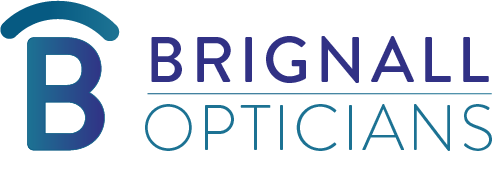
Myopia Management
Slowing down the progression of short-sightedness & reducing eye health risks
What is Myopia?
Myopia is the medical term for short-sightedness. Myopia in children is usually caused by their eye being longer than average. Adults who are highly myopic will need thicker or more expensive spectacles and be more prone to eye health risks. If myopia progression can be reduced in childhood, these issues in later life can be lowered.
A myopic eye is longer and light therefore focuses at a point in front of the retina, rather than on it.
Myopia in Children
Becoming more short-sighted is related to the changing shape of the eye as children grow. Slowing down myopia is most effective when children are still growing, from the ages of 6 to 16.
Essilor Stellest spectacle lenses are shown to reduce myopia in children.
Will my child be myopic?
While there is no definitive way to know how myopic someone will be, risk factors for becoming highly myopic are:
Parents being myopic
Being myopic before the age of 9
Spending limited time outdoors and using near vision more often
Being of East Asian ethnic origin
Controlling Myopia
Using new instruments, we can now get an accurate measurement of eye growth, allowing your optometrist to help you make a more informed choice about using myopia control treatments.
The risk and progression of myopia can be monitored by measuring the axial-length, this is the distance from the front to the back of the eyeball. It is more accurate than a sight test alone (1).
Myopia Control Products
Essilor Stellest Spectacle Lenses
A specially designed spectacle lens which helps slow down the elongation of the eye, thereby leading to less severe myopia. The Stellest lens also comes with a 12-month prescription change guarantee. The lens’s effectiveness is based on being worn 12-hours a day.
CooperVision MiSight Contact Lenses
Daily disposable contact lenses provide a spectacle-free approach to managing myopia. Children who are able to manage a contact lens routine may prefer them.
Discuss myopia management with the optometrist at your child’s next sight test. If you are unsure when their next routine sight test is due, contact us. See Fees & Funding for costs.
Frequently Asked Questions
-
Myopia control spectacles and contact lenses are advised for children who are starting to get myopic or are already myopic, aged 6-16 and with a prescription of -10.00D or less.
-
The NHS does not provide funding towards myopia management. Children are still eligible for NHS sight tests and spectacle vouchers.
-
If your child begins to use myopia control spectacles or contact lenses, we would monitor this at 6 month intervals.
(1) Noel A. Brennan, Youssef M. Toubouti, Xu Cheng, Mark A. Bullimore, Efficacy in myopia control, Progress in Retinal and Eye Research, Volume 83, 2021, 100923





